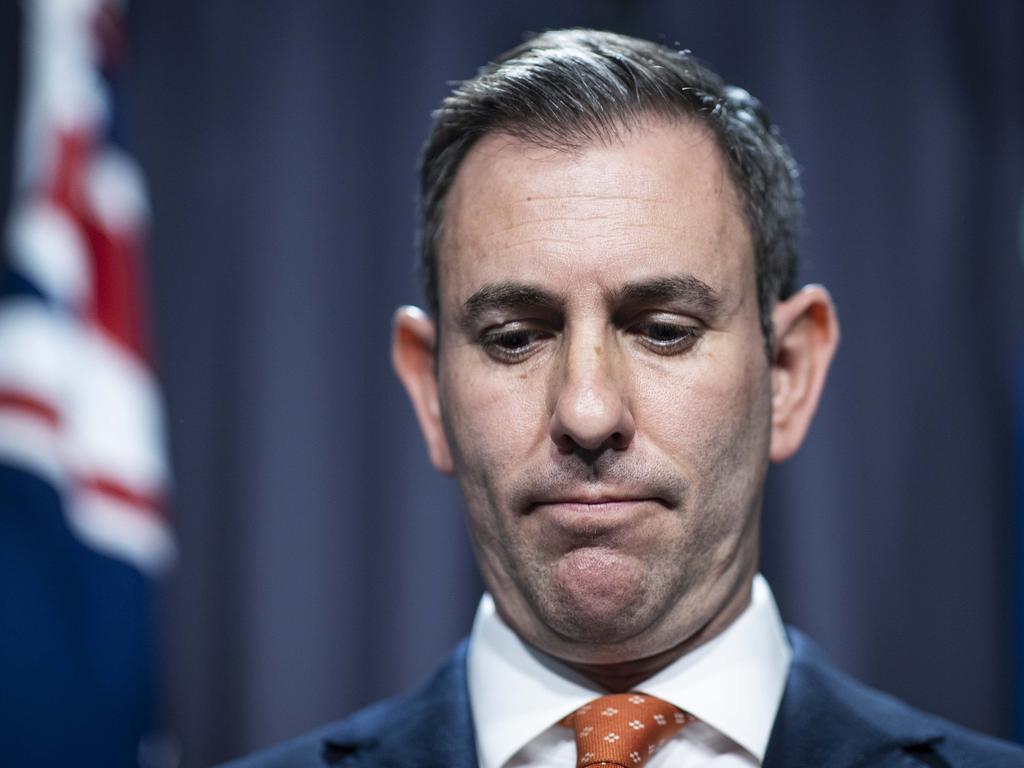
Yet the Treasurer’s attempt to shock Australians into the necessity for tough budget measures is proving a difficult and complex message with contradictory forecasts in the short, medium and longer term.
There is also the danger that Chalmers will be seen to be simultaneously talking down the economy and urging budget restraint while producing facts and forecasts that are better-than-expected and potentially too optimistic.
The simple truth: the budget and economy are going to get worse before they get better.
Another problem for Chalmers is that while he is warning of bad news, glaring issues, threats and warning signs to justify not funding “good ideas” nor continuing support payments indefinitely, Treasury forecasts don’t match his gloom in the longer term.
What’s more, he is soon going to be faced with the anachronism of a “dramatically better-than-expected” final outcome for the 2021-22 budget of Josh Frydenberg after releasing Treasury forecasts suggesting Australia will escape a recession.
Chalmers put his dilemma this way: “The current expectation is that it will get worse this year, moderate next year, and normalise the year after. Inflation will unwind again, but not in an instant.”
Trying to play down the importance of the final budget outcome and suggest rises in tax revenue and export earnings would diminish, Chalmers laid out the full litany of economic horrors of rising inflation and interest rates and even the prospect of unemployment rising again while wages would remain lower than people would want.
“There is no use tiptoeing around the pressure that people are under. You know what we are up against.

“You see it every day. At the supermarket. In your pay packet. When the electricity bill arrives,” he said.
This is the crux of Chalmers’ problem: he needs to jolt the public out of complacency; there are dire falls in economic performance to come but after three months in office, the Albanese government still has a welter of promises to keep and none is cheap.
The Treasurer went so far as to point to the spending pressures from healthcare, the National Disability Insurance Scheme and providing wage rises for aged-care workers – all key election promises.
Chalmers’ economic statement on Thursday is more important than the much vaunted but still symbolic introduction of the climate change target of 43 per cent carbon emissions cuts.
It’s more important because it is the full, brutal assessment of the nation’s economic future in the most challenging times for more than 50 years and because it will determine the political success and longevity of the Albanese government.
For all its importance and sombre warnings and the fact that it is the biggest parliamentary statement Chalmers has made in his political career, another more important statement has to come on October 25 when his first budget speech spells out, in detail, how the Albanese government will deal with this ultimate challenge.








Jim Chalmers has delivered the most important statement in the first parliamentary week of the new Labor government with a grim and chilling warning on the economy that wouldn’t “bury the bad news or gloss over glaring issues”.